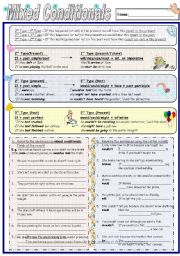


Hence, we cannot use adverbs of time with a generic conditional. While it can refer to both present and past in English, it seems that it is independent of time in MA. Finally, a generic conditional category in MA behaves in a different way than it does in English. Verb forms reveal the position the speaker holds toward the fulfillment of the proposition in the different conditional types.

Concerning, non-distanced predictive conditionals, both conjunctions are used except for speech act conditionals. The main distinction between the two lies in the attitude the speaker has toward the fulfillment of the propositions expressed in the construction. MA conditionals are introduced by either īla or kūn. The two belong to one type called distanced predictive conditionals. The two types which do not exist in MA are Elliptical conditionals and the absence of the distinction between weak and strong predictive conditionals. However, unlike English, MA has just eight sub-types. Adopting the typology of conditional constructions suggested by Dancygier (1999) and Dancygier & Sweetser (2005), this study examines conditional constructions that are introduced by the particles īla (إﻻ), lūkān (,)ﻟوﻛـــــــــــﺎن ūkakān (,)وﻛﻛــــــــــﺎن kūn (ـــــون ,)ﻛـ kānkūn (ــــــــــــﺎﻧﻛون ,)ﻛـ ūkān (.)وﻛــــــــﺎن MA has the three main categories that exist in English, namely predictive conditionals, non-predictive conditionals, and generic conditionals. This study describes conditional constructions in Moroccan Arabic (henceforth MA) using a cognitive approach.


 0 kommentar(er)
0 kommentar(er)
